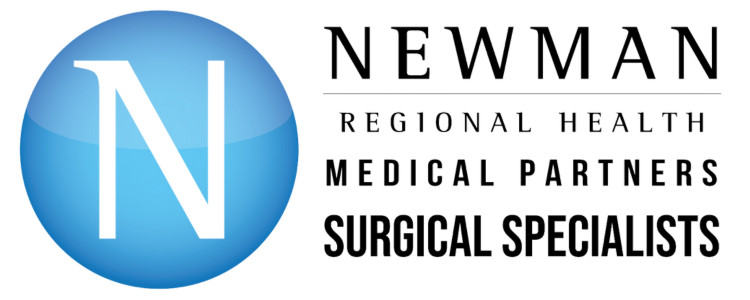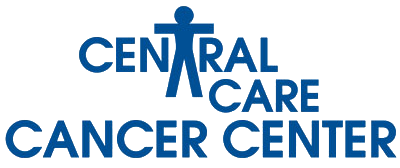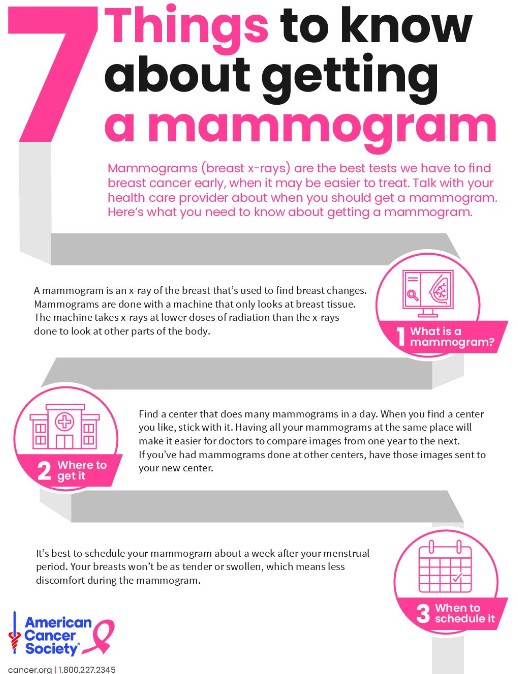Breast Cancer Screening Emporia, KS

How common is breast cancer?
Breast cancer is the most common cancer in women in the United States, except for skin cancers. It accounts for about 30% (or 1 in 3) of all new female cancers each year.
The American Cancer Society’s estimates for breast cancer in the United States for 2024 are:
- About 310,720 new cases of invasive breast cancer will be diagnosed in women.
- About 56,500 new cases of ductal carcinoma in situ (DCIS) will be diagnosed.
- About 42,250 women will die from breast cancer.
Breast cancer mainly occurs in middle-aged and older women. The median age at the time of breast cancer diagnosis is 62. This means half of the women who developed breast cancer are 62 years of age or younger when they are diagnosed. A very small number of women diagnosed with breast cancer are younger than 45.
W.S. & E.C. Jones Breast Care Center at Newman Regional Health
Since 2012, we have enabled patients to obtain preventive screening and diagnostic procedures locally in a comfortable environment from a multi-disciplinary team of caring professionals.
The team includes board-certified oncologists, radiologists, and surgeons supporting your personal physician, a mammography technologist and support personnel trained to support patients and their family members through the entire treatment process.
Along with digital mammography, other services include stereotactic breast biopsy, needle localizations, and ultrasound.
What you need to know about getting a mammogram
From the American Cancer Society
Mammograms (breast x-rays) are the best tests we have to find breast cancer early, when it may be easier to treat. Talk with your health care provider about when you should get a mammogram. Here’s what you need to know about getting a mammogram.
1. What is a mammogram?
A mammogram is an x-ray of the breast that’s used to find breast changes. Mammograms are done with a machine that only looks at breast tissue. The machine takes x-rays at lower doses of radiation than the x-rays done to look at other parts of the body.
2. Where to get it
Find a center that does many mammograms in a day. When you find a center you like, stick with it. Having all your mammograms at the same center will make it easier for doctors to compare images from one year to the next. If you’ve had mammograms done at other centers, have those images sent to your new center.
3. When to schedule it
It’s best to schedule your mammogram about a week after your menstrual period. Your breasts won’t be as tender or swollen, which means less discomfort during the mammogram.
4. What (and what not) to wear
Wear a 2-piece outfit because you will need to remove your top and bra. Do not use deodorant, antiperspirant, powder, lotion, or ointment on or around your chest on the day of your mammogram. These products can appear as white spots on the x-ray.
5. What to expect
The entire process takes about 20 minutes. The breast is compressed between 2 plastic plates for a few seconds while an x-ray is taken. The plates are moved to a new position and the breast is compressed again to take another view. The same process is done on the other breast. Flattening the breast can be uncomfortable but is needed to provide the clearest view.
6. Getting the results
You should get your results within 10 days. If you don’t, you should call to ask about them. If doctors find an area that looks different from the rest of your breast, you’ll likely need to get new x-rays taken or get other tests. But that doesn’t mean you have cancer. The doctor may have seen dense breast tissue or a cyst. Other times, the image just isn’t clear and needs to be retaken. If this is your first mammogram, your doctor may want to look at an area more closely because there is no previous mammogram to compare it with.
7. What you pay
For women who are uninsured or can’t afford the cost, free or low-cost mammogram services are available. Read More
FREE Screening Mammograms
We believe that early detection of breast cancer is essential for successful treatment and recovery. We also know that not every patient has the financial resources available for a potentially life-saving screening mammogram. Each year, The W.S. & E.C. Jones Breast Care Center establishes a special fund to assist our community residents who need assistance.
Residents of our service area of Lyon, Coffey, Chase, Morris, Osage, or Greenwood counties are eligible. The program was developed to assist patients no insurance coverage and/or ineligible for Early Detection Works (EDW) funding (this includes if EDW grant funds are exhausted). The funds are for screening mammograms only at the W.S. & E.C. Jones Breast Care Center

- Early detection through screening
- Managing comorbid conditions
- Pain management
- Follow-up care
- Overall cancer patient management

- State-of-the-art 3D Digital Mammography
- New stereotactic biopsy equipment
- Pink Ribbon Facility as designated by the American College of Radiology
- Mammography Accredited Facility

- Lumpectomy or partial mastectomy
- lymph node biopsy and/or axillary lymph node dissection
- Mastectomy

- Surgical Suite and Operating Rooms
- Patient Pharmacy Support
- Perioperative Care
- Acute Care
- Inpatient Rehabilitation

- Gentle stretching, joint movement
- Massage (to improve healing and range of motion)
- Strengthening and home exercise
- Teaching good posture

- Radiation Therapy
- Chemotherapy
- Immunotherapy
- Non-chemotherapy Agents


